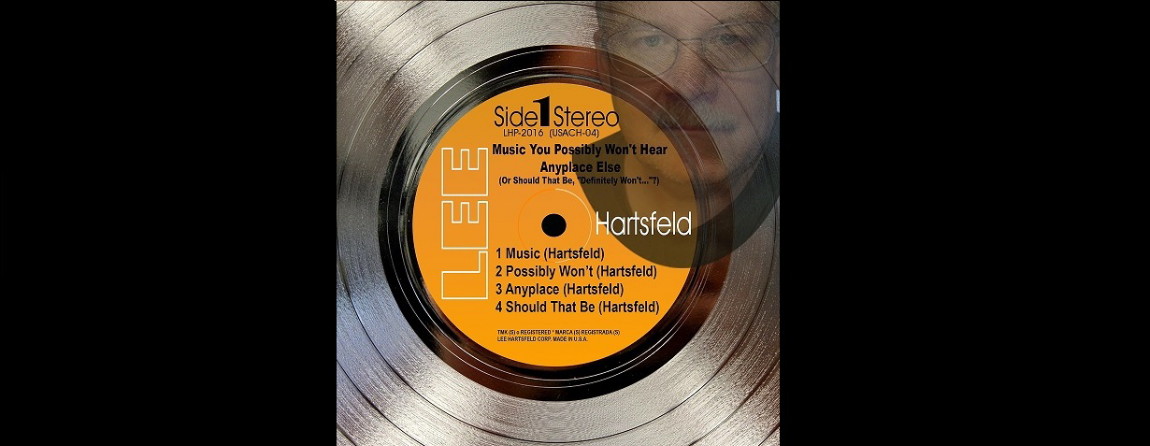A cryptful of shiver-producing shellac, and I had a devil of a time finding my copy of Spooky Spooks, that 1916 classic by Charles Prince's A. Band. And, wouldn't you know it, the first place I should have checked was exactly where the thing turned up, but did I look there first? No, of course not--I went through my entire 12" 78 stash--twice, no less--before checking my first choice. There's a moral there, someplace. You've heard, "It was in the last place I looked" (which some regard as redundant, since, as a rule, people stop searching once they've found something), but this time, it's "in the first place I should have looked." A lesson for us all. Go with your guts. And not in the gore-picture sense.
So, I need to hurry here, lest I drive myself sane. And, you know, I was afraid I might end up with thirteen tracks in this list (I'm not superstitious, but...), but I wound up with fourteen, so... whew! I'm in for good luck on Sunday, I reckon. Frankie says, "Arrrrrghhh!!" I'm sure we all appreciate his input.
In the scary-titles-for-music-that-turn-out-to-not-be-scary sweepstakes, the winner has to be 1955's The Theme from Dial "M" for Murder, which starts out in a horror vein but quickly moves into a Morton-Gould-mood-music mode. Nice selection, but it must depict one of the less suspenseful moments in the Hitchcock film. And we have one of my best-ever thrift finds--the "Theatre Lobby Spot" for the classic Japanese horror flick, The H-Man (1958). I presented it in a single file, though it's really two bands on (what looks to be) a vinyl 78, with no lead-in groove to the second part. I spliced them together, shouting "Live! LIVE!" having forgotten, for a brief moment, that I'm not Victor Frankenstein. We have some concert "horror" fare, too: Rachmaninoff's C-Sharp Minor Prelude, as played by Marek Weber's orchestra in 1928, Manuel de Falla's The Fire Dance, as conducted by Eugene Goossens in 1928, and Chopin's famous Funeral March, Op. 35, as played on the pipe organ by Mark Andrews in 1928. Clearly, 1928 was a good year for spooky background music.
And we have (straight from the 78) Beatrice Kay's 1947 Hooray, Hooray, I'm Goin' Away, which very possibly influenced a certain 1966 novelty hit. Plus, a companion piece to last post's Little Nell--another mini-melodrama called No! No! A Thousand Times No! as provided by Harry Reser's Orchestra in 1934. On the Level You're a Little Devil (no comma in sight on the label) is a 1918 novelty that'll have you saying "Awwww." Or not. 1919's A Cat-Astrophe features cartoon sound effects before there were such things, and Vamp Me is yet another charming Byron Gay novelty from the days of the proto-big bands (as in, 1922). Then we have the wacky 1907 novelty Gesundheit! (To Your Health), because nothing says "Halloween" quite like sneezing. (Wait a minute...) Actually, I'm not sure why I included this one. Wait, I know--it puts the playlist count up to fourteen, from thirteen. That must be why.
Happy Halloween!
DOWNLOAD: Shivery Shellac, Part 3! (1907-1958)
A Cat-Astrophe--Columbia Orch., Dir. by Charles A. Prince, 1919
Vamp Me--Rega Dance Orchestra, 1922
On the Level You're a Little Devil--Irene Farber and Lewis James, 1918
Gesundheit! (To Your Health)--Arthur Pryor's Band, 1907
Spooky Spooks--Prince's Band, 1916
Funeral March (Chopin, Op. 35)--Mark Andrews, Pipe Organ Solo, 1928
Prelude (Rachmaninoff)--Marek Weber and His Orch., 1928
Dance Macabre--Lew White, Organ, w. Xylophone and Piano, 1942
My Friend the Ghost--Jill Whitney, 1954
No! No! A Thousand Times No!--Harry Reser and His Orch., V: Tom Stacks, 1934
The Fire Dance (Manuel de Falla)--Hollywood Bowl Orch., c. Eugene Goossens, 1928
Hooray, Hooray, I'm Goin' Away (Skylar)--Beatrice Kay w. Mitchell Ayres, 1947
The H-Man (Theatre Lobby Spot)--1958?
Theme from Dial "M" For Murder (Tiomkin)--Dimitri Tiomkin and His Orch., 1955
Lee
























